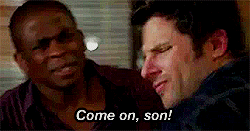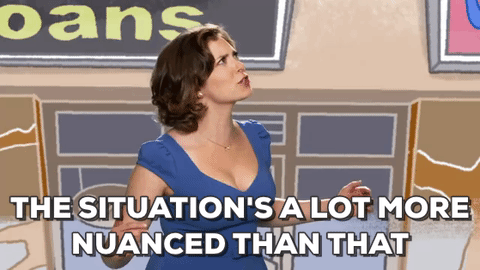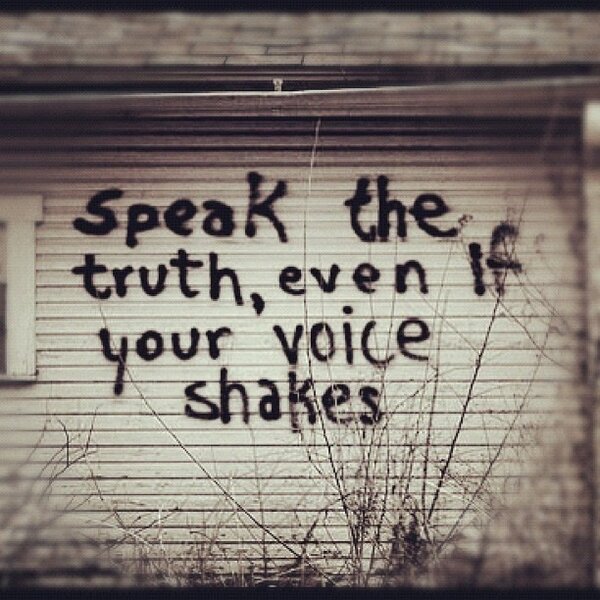So everything is terrible right now (do I really need to make a list?) and a lot of writers are speaking out. In fact, they have been speaking out for months now, or at least those who knew what was at stake. Leading up to the US election, there was a handful of the “writers, if you talk politics, you’ll alienate people” (and we know how I feel about that), and I expect those think pieces will spike again in publishing circles. “Don’t talk about politics!” “Don’t write about politics!” “Don’t sound so angry!” “Be nice!”
Here’s the thing: writing is always political. It always has been. It always will be.
Do you like nice “respectable” books like Pride and Prejudice? Read that through the lens of a historian: Austen wrote about class and gender. Her books were just as political then as books are now. Anne Bronte wrote about a woman leaving her abusive alcoholic husband, FFS, and she had to use a male pen name to do it–that was political*. And do you really think there were no politics in Shakespeare’s work?

Further, it isn’t merely the people speaking up who are being “political”**–silence is also political.
I see writers get accused of being “political” for including LGBT characters in a book, for example, but here’s the thing: LGBT people exist. You probably know some, whether they’re out to you or not. By not including them in your work, by erasing their existence from your fictional worlds, you are also being political. People of colour have existed in the cultures we think of as “white” all throughout history. Including non-white people in contemporary, historical, or European fantasy is both accurate and realistic; erasing them, therefore, is more “political” than including them.
I write about paranormal worlds where the fantastical is common, but my personal views, my politics, and what’s important to me is still evident in everything I write. I don’t need to be writing Scandal for my opinions to shine through. You do not exist in a vacuum. Your books do not exist in a vacuum. Everything you say and do and are is a result of your environment; you cannot divide the world around you cleanly from what you write.
Similarly, whether you speak up or not about our current political climate, you are being just as political as everyone else.
Let’s say you’re on a train with twenty other people. One passenger begins hitting another passenger. Two people speak up and say “Hey, stop hitting that guy”. One other tries to stop the violent passenger. But you say and do nothing. You have your reasons–you don’t want to get hit too, you have your own worries and issues, etc. That’s fine. But understand silence is a choice. Maintaining the status quo is a choice. Not picking a “side” is still a choice (and favours the oppressor, TBH).
In fact, if you go so far as to tell the other passengers they shouldn’t speak up, they shouldn’t act, because it means other passengers will like them less? You are still making a “political” choice. You’re not only choosing silence for yourself but trying to impose it on others.
“But we’re not talking about hitting people, Skyla–we’re talking people not accepting election results, and they’re being so hateful.”

a. Anger is not equal to “hate”. Anger is a healthy, normal response in many instances. If you don’t feel it’s justified in this instance, I suggest you settle down and listen for a while, because people who are vulnerable are saying there’s a problem. It never hurts to consider the POV of someone different from you–you’re writers, it’s your fucking job. Instead of getting mad that other people are mad, try listening.
b. Some people are being hit. Literally. And having their homes vandalized. And their children threatened. By fucking white supremacists. If you’re not speaking up against that but want to tone police how others react, you are being just as political as they are.
c. Often you don’t see the hitting because you are looking the other way and you’re not friends with the people being hit. Sometimes all you hear is the yelling for the hitting to stop. Just because you don’t witness it doesn’t mean it’s not happening, and maybe you should investigate before you tell others to stop speaking up.
Choosing silence is just as political as choosing to speak or act on a subject. To paraphrase some of my previous blog post on writers discussing controversial subjects: these things are only “political” if you come from a position of privilege and it’s not your life, health, and safety on the line.
Your silence will lose you just as many readers as speaking up will. Yes, there absolutely are those who will stick with a writer who plays it safe, who pretends they’re not “political”. But there are also readers who will notice you’re not commenting on the fact that they’re being hit, just like they’ll notice when people who look like them and their families are never reflected in your books. Do you care as much about losing those readers as the ones who threaten to boycott you for speaking your mind?
I am probably supposed to say here that regardless of what “side” you come down on, it’s okay to speak up, but you know…pretending there are two “sides” right now, and normalizing the extreme as a valid position, would be just as political as saying otherwise. So fuck that. Actual literal Nazis are being tapped for government cabinet positions. Japanese internment camps (and FYI, Korematsu v. US was never actually overturned) are being used as precedent to justify a Muslim registry. Regardless of who you voted for, these are things you hold your elected officials accountable for. These are things you speak up against. This is when you join your fellow patrons on the train and say “NOT OKAY, DUDE.”
Pretending to be neutral is just as political as what I have written here.
So choose your politics, motherfuckers.

* Relevant: the author’s note from Anne Bronte in the second edition of The Tenant of Wildfell Hall: “To represent a bad thing in its least offensive light, is doubtless the most agreeable course for a writer of fiction to pursue; but is it the most honest, or the safest? Is it better to reveal the snares and pitfalls of life to the young and thoughtless traveller, or to cover them with branches and flowers? O Reader! if there were less of this delicate concealment of facts–this whispering ‘Peace, peace’, when there is no peace, there would be less of sin and misery to the young of both sexes who are left to wring their bitter knowledge from experience.” Writing has always been political.
** I maintain that “politics” is not the same as HUMAN RIGHTS. Politics involves weighing in on what a surplus should be spent on or deciding between early childhood education plans. (And, to be clear, I love politics and find that interesting.) Human rights are not “politics”. There is no debate on whether or not FUCKING INTERNMENT CAMPS ARE A GOOD THING.
ETA: I am not entertaining discussion from any supporters of an admitted sexual predator and racist. This should be apparent if you have read our comment policy or any of my previous posts. I am particularly not entertaining any discussion from condescending mansplainers who have previously been warned to watch themselves. To engage with such an argument would be to give it weight and attention it does not deserve.
I <3 you.
Also, I would argue that most, if not all art, is political.
Absolutely. Even the things we don’t think of as being really personal art (like paid projects under specific direction) contain the political. Marketing decisions are political. We cannot separate ourselves from the political, and artists in particular due to the very nature of our work.
<3 you too, lady.